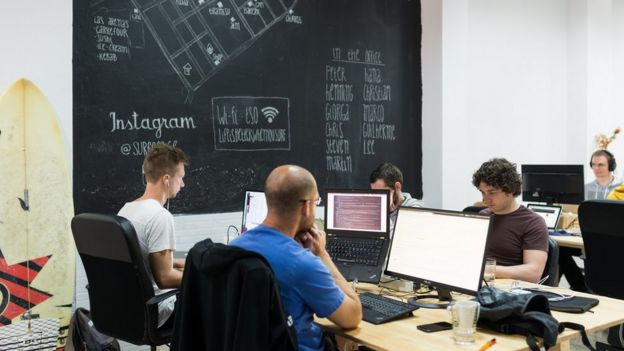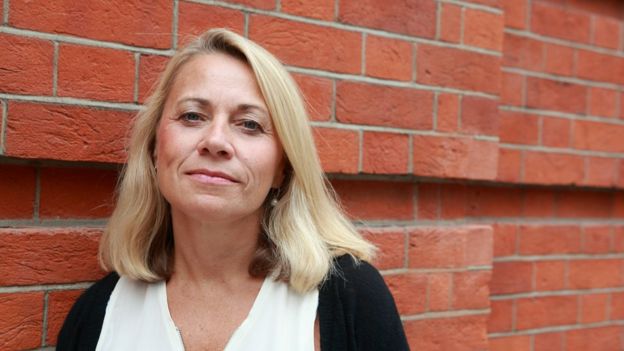 |
| Imagine working remotely from a state-of-the-art office in central Lisbon, before heading to the beach for some some surfing at the end of the day. |
Fact of the day, Technology such as instant messaging and video conferencing has given us the freedom to work from just about anywhere at any time.
The Surf Office is one of a growing number of companies aiming to meet the needs of so-called digital nomads who use this freedom to combine work and lifestyle.
Surf Office provides workspace and accommodation in Lisbon and Gran Canaria - and afternoon surf trips and lessons.
In Lisbon, for about £47 a night, you can get a private room, shared kitchen and bathroom, plus access to modern office facilities and meeting rooms.
Meanwhile, a new start-up, Roam, whose co-living, co-working locations include Miami, Bali and - from this week - Madrid, promotes itself as "an experimental community testing the boundaries between work, travel and life". You can sign up for a week, or months.
 |
Peter Fabor from Surf Office says: "Our clients include both freelancers and employees who can work remotely. The way things are going, I think working this way will become the norm within the next five years."
Office space halved
The trend for working remotely is already well established. In the UK, for example, more than four million Britons already work from home, according to the latest official statistics.
Many of these people work via fully-connected virtual offices - a far cry from the days when home workers just had a phone and email.
For employers, it means they can avoid costly overheads such as rent and electricity.
Donna Sewell, founder of law firm Legal Edge, is convinced of the benefits.
"We've never had large offices," she says. "In fact, in the last 12 months we have halved what office space we did have to a modest two-desk room for a team of 15 lawyers.
 |
"We can provide a better service using cloud-collaborative working tools such as Google's corporate suite and Google doc."
David Locke, global principal architect at computer company VCE, which specialises in IT systems incorporating mobile, cloud and social ways of working, says more and more companies are moving away from the traditional office model.
|
"We are seeing an increased demand for solutions that allow our customers to deliver secure virtual desktops and mobile device management for employees no longer based in offices," he says.
One of his financial customers has introduced a policy where two people share each desk, but take turns to work from home.








No comments:
Post a Comment